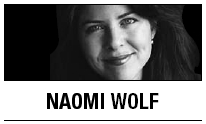NEW YORK ― Julian Assange, the founder of WikiLeaks, is in the news again, this time after former Swiss banker Rudolf Elmer turned over to him confidential records on roughly 2,000 wealthy individuals that Elmer claims contain evidence of money laundering and tax evasion. Elmer was quickly convicted of violating Switzerland’s bank-secrecy law, but few journalists have demanded that Assange be prosecuted for his role in the affair. That, apparently, happens only in the United States.

There, in the midst of the debate over WikiLeaks’ ongoing release of classified U.S. State Department cables, and as the government threatens Assange with extradition and prosecution, respected journalists are running for cover. One would expect lead editorials by the New York Times, the Wall Street Journal, and USA Today, not to mention all major television outlets, defending WikiLeaks’ right to publish. Instead, all we have heard is an awkward, deafening, and breathtakingly hypocritical silence ― or worse.
Most American journalists fully understand that Assange did not illegally obtain classified material; the criminally liable party is whoever released the material to the site. He is not the equivalent of Daniel Ellsberg, who in 1971 illegally released the Pentagon Papers, the U.S. military’s secret history of the Vietnam War; rather, he is analogous to The New York Times, which made the brave and correct decision to publish that material.
Moreover, American journalists know perfectly well that they, too, traffic in classified material constantly ― indeed, many prominent U.S. reporters have built lucrative careers doing exactly what Assange is doing. Any dinner party in media circles in New York or Washington features journalists jauntily showing prospective employers their goods, or trading favors with each other, by disclosing classified information.
On CNN recently, a long pause followed when I asked legal analyst Jeffrey Toobin ― who was calling for Assange’s arrest ― if he had really never handled classified information. That is what serious journalists do, after all: their job is to find out what government officials do not want revealed.
American journalists also know that the government classifies information mostly to spare it embarrassment, or for expediency, rather than because it has genuine national-security concerns. Many of the Washington Post reporter Bob Woodward’s bestselling books, which have made him America’s highest-paid print journalist, are based on classified information.
So where are the calls for Woodward’s arrest? Why do all these reporters, who get praise and money for doing what Assange has done, maintain a cowardly silence (at best) while a fellow publisher faces threats of extradition, banning, and espionage charges (which can incur the death penalty), not to mention calls for his assassination?
One reason might be the sexual-misconduct charges against Assange. But any serious journalist knows that the two issues must not be conflated. The right to free expression applies to rogues and scoundrels, sleazy personalities, and even criminals. Indeed, the most famous free-speech cases ― the ones that are supposed to showcase America’s strength and moral power ― involve the protection of speech that most decent people hate.
So, again: why have U.S. journalists and editors turned Assange into a pariah? According to Nancy Youssef, a journalist for McClatchy Newspapers, the Freedom of the Press Committee of the Overseas Press Club of America in New York City declared Assange to be “not one of us.” The Associated Press refuses to comment on him. And even the National Press Club decided not to speak publicly about the possibility that Assange may be charged with a crime. Instead, it has fallen to foreign press organizations to defend him.
The Assange case shows that no coup is needed to close down an open society. You need only accomplish a few key critical tasks. One is to intimidate journalists, say, by accusing a high-profile reporter of “treason” or endangering national security through his reporting, and then threatening him with torture, a show trial, or indefinite detention. No mass arrests or further threats are required, because other reporters immediately start to police and censor themselves ― and to attack the “traitor” in their midst.
There is another sense in which, from the perspective of establishment U.S. journalists, Assange is “not one of us.” American journalism’s business model is collapsing; the people who should be defending Assange are facing salary cuts or unemployment, owing in large part to the medium that he represents. These journalists’ self-interested prejudice against a medium in which they are not the gatekeepers prevents them from conceding that Assange is a publisher, rather than some sort of hybrid terrorist blogger.
In this, paradoxically, they have become like the outraged U.S. government officials who are now threatening Assange, and who also are no longer able to control the flow of information. In their behavior toward Assange, the U.S. government and major American media are lashing out at the face of a future in which there are no traditional gatekeepers, and all institutions live in glass houses.
This is why pursuing Assange is futile and absurd. Even if he is locked up forever, the world of the future is a WikiLeaks world. Trying to convict him is like trying to convict the first person who installed a telephone. In five years, every major institution could be held accountable by its own version of WikiLeaks ― so that taxpayers, shareholders, members of university communities, and so on, can find out what the traditional gatekeepers prefer to hide.
When bullied, journalists can protect themselves only by fighting back ― as a group. And when a technology-led change is inevitable, integrating it into an open society should be one of journalism’s chief tasks. But that mission now seems lost in America.
By Naomi Wolf
Naomi Wolf is a political activist and social critic whose most recent book is “Give Me Liberty: A Handbook for American Revolutionaries.” ― Ed.
(Project Syndicate)








![[Today’s K-pop] Blackpink’s Jennie, Lisa invited to Coachella as solo acts](http://res.heraldm.com/phpwas/restmb_idxmake.php?idx=644&simg=/content/image/2024/11/21/20241121050099_0.jpg)